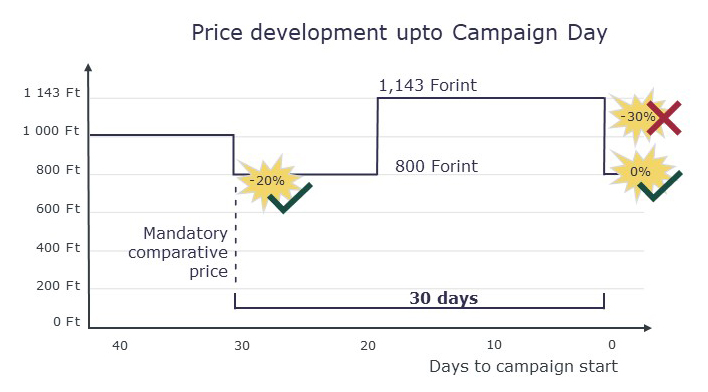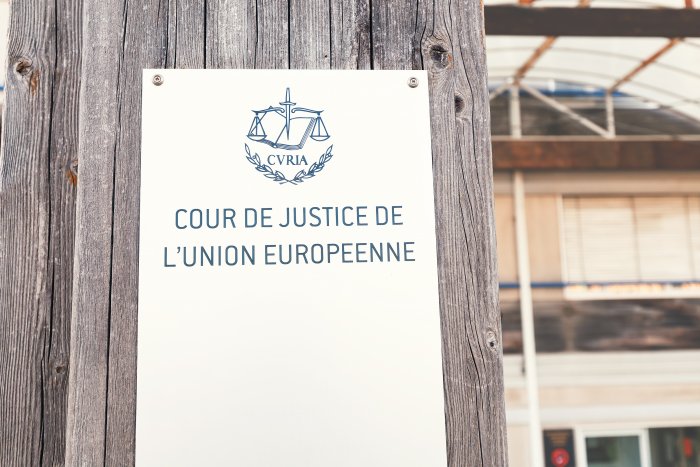Real or Fake Discount: New Rules on B2C Price Campaigns

Anikó Keller, Partner, Szecskay Attorneys at Law
May 2022 brought several wide-ranging changes in consumer protection as a result of the implementation of EU consumer protection legislation, the so-called “New Deal for Consumers.”
The changes concern many, if not all, steps of the sales process: rules relating to advertising, sales, and the performance of contracts were fine-tuned. Particular emphasis was put on addressing challenges created by the digital world based on practical experiences and feedback from stakeholders.
Below, we give you an overview of the new rules in advertising law, more specifically, announcing price reductions in B2C relations.
Article 2(1) of the Omnibus Directive amended the so-called Price Indication Directive or PID, which amendments were implemented in a Decree of the Minister of Innovation and Technology in Hungary. To assist businesses with interpreting the new rules, both the European Commission and the Ministry of Innovation and Technology (ITM) have issued separate guidance.
Most of the new provisions of the relevant Decree carry over the exact wording used in the PID. Any announcement of a price reduction must now indicate the prior price applied by the trader for a determined period before applying the price reduction. The prior price means the lowest price applied by the trader during a period not shorter than 30 days before the application of the price reduction.
It is worth highlighting that as the new provisions apply to all price reduction announcements, this means that if more price reduction campaigns are organized within less than 30 days, the prices announced in the second price reduction campaign must be compared to those of the first price reduction campaign (if it is the lowest price), and thereby, the commercial communication may be less attractive for consumers.
But what happens if the product has been on the market for less than 30 days? In such a case, the Decree stipulates that the prior price means the lowest price applied by the trader during a period not shorter than 15 days before the application of the price reduction. If the product has not been on the market at all, the ITM guidance confirms that, for new products, no price reduction campaigns may be held as no prior price exists, but introductory prices may be applied.

Gradual Price Reductions
A special rule applies for gradual price reductions. In this case, the prior price is considered the benchmark price to compare all discounted prices in the course of the price reductions. According to the EU guidance, this rule must be interpreted narrowly, however, and it only applies when the price is reduced progressively, without interruption, and without increasing the indicated “prior” price.
Finally, it is to be noted that these new rules do not apply to products that are liable to deteriorate or expire rapidly. In the case of these products, no prior price may be indicated. Here, the main question is what may be considered a product liable to deteriorate or expire rapidly.
The EU guidance here is quite general: first, it states that this is to be assessed case-by-case. Secondly, it gives an example for such goods: fresh food and drinks with short expiry time limits. The ITM guidance explicitly states that when deciding whether a food product is liable to deteriorate or expire rapidly, the “use by” or “best before” date is relevant. Namely, food products marked “use by” are liable to deteriorate or expire rapidly.
Businesses must pay close attention to organizing price reduction campaigns according to the new rules, as the consequences of non-compliance can be harsh; consumer protection authorities, including the Hungarian Competition Authority, may impose significant fines of up to 10% of the company group’s net turnover in the preceding business year.
This article was first published in the Budapest Business Journal print issue of June 3, 2022.
SUPPORT THE BUDAPEST BUSINESS JOURNAL
Producing journalism that is worthy of the name is a costly business. For 27 years, the publishers, editors and reporters of the Budapest Business Journal have striven to bring you business news that works, information that you can trust, that is factual, accurate and presented without fear or favor.
Newspaper organizations across the globe have struggled to find a business model that allows them to continue to excel, without compromising their ability to perform. Most recently, some have experimented with the idea of involving their most important stakeholders, their readers.
We would like to offer that same opportunity to our readers. We would like to invite you to help us deliver the quality business journalism you require. Hit our Support the BBJ button and you can choose the how much and how often you send us your contributions.





KOENIGSHOFER%20MICHAEL_3zu4_PRINT-CUT-SMALLER.jpg)
-SMALLER-CUT.jpg)

